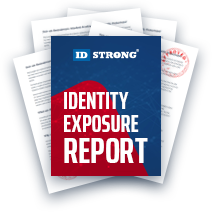Exploring the Pros and Cons of Purchasing Cryptocurrency with PayPal Wallet
Table of Contents
- By Bryan Lee
- Published: Dec 19, 2023
- Last Updated: Dec 27, 2023

The explosive growth of cryptocurrencies was nothing short of extraordinary. Even the most doubtful among us couldn’t help but put a few dollars in to see what would happen. The phenomenon gave rise to many cryptocurrency management platforms, and PayPal put its hat in the ring as well.
Unlike apps made for the explicit purpose of handling crypto, PayPal was an established platform with roughly 350 million users. The finance giant had a reach that was impossible to match, yet its new cryptocurrency-focused features were met with harsh criticism.
Here is an overview of the good and bad components of PayPal’s crypto purchasing process so you can decide if the platform is right for you.
How to Buy Crypto on PayPal
PayPal is one of the most recognizable online financial services. However, most users only consider it a way to transfer money between entities. The good news is that people already using PayPal regularly have few barriers to starting crypto trading.
The first requirement is to have funds available in their PayPal balance. Unfortunately, trading directly from the user’s connected bank account is impossible. The money used in a crypto transaction must be in the PayPal wallet.
The second requirement is completing the Know Your Customer verification process (KYC). Users provide documents like driver’s licenses or passports to ensure they sign up with their legitimate identity. People who are already familiar with PayPal should already meet both requirements.
Once users meet the previous conditions, they can use PayPal as a payment method on crypto trading platforms such as Kraken and Coinbase. Popular centralized exchanges include PayPal as one of the default payment methods and should ask permission to link with your PayPal account.
Pros of Buying Cryptocurrency with PayPal
PayPal’s massive reach affords it many advantages. The platform allows people to dip their toe into crypto trading in a far more approachable way. Trading directly from a bank account can lead to uncontrolled or ambiguous spending and is quite daunting.
In contrast, users can preload a set amount into their PayPal wallet to play with. This takes the pressure off and allows them to trade with a set and controlled budget. It’s the same reason it’s better to eat chips from a bowl than straight from the bag. The bowl is a limiter that prevents you from eating the entire bag in one sitting. AKA spending too much money from your bank account.
Getting into the game with this kind of tempered approach gives new traders the time to do further research. They can start with small transactions and learn more about their assets.
Despite what we said before, PayPal isn’t only for those new to the crypto game. Experienced traders may choose PayPal to speed up how long crypto takes to appear in their wallet. PayPal instantly displays your freshly bought currencies, whereas the transaction can be delayed by more than ten minutes when going through the blockchain. This may not seem like a significant problem, but the ability to instantly access your assets is a massive deal during fast-paced trades.
Additionally, because PayPal operates as a payment platform, users can use their crypto holdings to purchase products directly. Of course, this option depends on the vendor accepting cryptocurrencies as a payment method.
Cons of Buying Cryptocurrency with PayPal
PayPal has its fair share of critics, but it’s generally looked favorably upon for its speed and reliability. However, many problems people have with the platform are accentuated when dealing with cryptocurrencies.
Transaction Fees
For many potential buyers, PayPal takes too large of a cut. For those familiar with PayPal, this is hardly a surprise. There are no fees for holding cryptocurrencies in your PayPal wallet or when moving them to other users on the platform. However, users will face a sizable transaction fee when selling crypto outside PayPal or using it as currency for a purchase.
It’s true that traditional cryptocurrency exchanges also charge significant fees. The difference is that you personally hold the asset after the purchase with those platforms. You can search for the best conditions when moving the crypto in the future rather than being beholden to PayPal’s regulations.
Risk of Scams
This con applies to PayPal as a whole but is something you should know if you’re new to the platform. For better or worse, there are millions of people on PayPal, and some of them will try to steal your money.
One of the risks of keeping a digital wallet is how easy it is to transfer money around. Scammers impersonate anyone from PayPal employees to business owners to trick their way into your wallet.
A typical example is when a stranger sends you money by mistake. They ask you to return the funds quickly, but the original “accidentally” sent amount never reaches your account. So, you send them money without any compensation.
Lack of Ownership of the Crypto
Buying crypto through PayPal doesn’t give you ownership over the asset. Instead, PayPal buys it on your behalf and charges the fiat equivalent to your wallet. This sounds like a technicality initially, but adds many annoying inconveniences to the service.
The primary limitation is that users can’t add more of a matching coin to their wallet. For example, if Joe already owns one Bitcoin outside of PayPal, he can’t add it to the Bitcoin he bought through PayPal. This is because what Joe owns inside PayPal isn’t technically Bitcoin but a fiat currency the company manages.
Limited Options
Bitcoin used to be the only coin people knew, but that’s hardly the case today. There are countless cryptocurrencies in circulation, and new ones pop up daily. High-risk buyers like to engage in microcap trading, a more niche sector that is impossible through PayPal.
PayPal only offers its services to the four most prevalent crypto options. These offerings include Bitcoin, Ether, Bitcoin Cash, and Litecoin. All four are predominantly reliable and have passed the test of time. Limiting the selection may be suitable for new traders but is an unnecessary restriction on more knowledgeable users.
Make Sure to Do Your Research Before Investing Anywhere
PayPal’s cryptocurrency model is far from perfect. It’s worth starting with PayPal and getting used to the trade if you’re new to crypto. You get instant access to fiat money without creating a new direct deposit with your bank.
However, as you get deeper into the game, you may feel the limitations surrounding PayPal’s crypto offerings. Users are primarily restricted to the platform if they want to avoid fees, and boundless PayPal scams are trying to steal your earnings.
Take the time to research how you want to start your crypto journey. Are you uncomfortable with PayPal having custodianship over your coins? Go with a traditional currency exchange. Do you want a more streamlined and low-risk experience? Start with PayPal.
There’s no one answer since everyone’s situation and preferences are different. Use the information in this post to decide what’s right for you, and if you have any further questions, feel free to reach out to our team at IDStrong!



















































































































